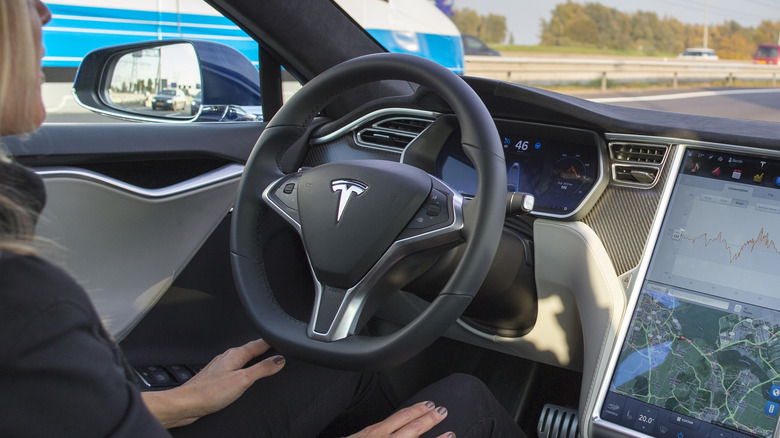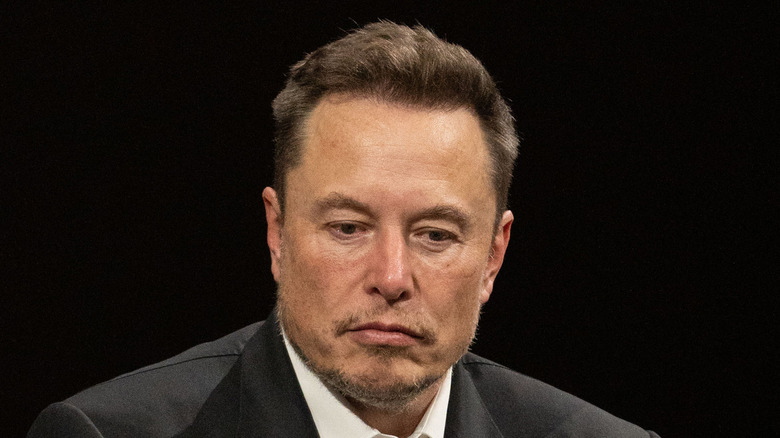
Bloomberg/Getty Images
During Tesla’s second fiscal quarter earnings call today, Tesla chief Elon Musk said that the company is “very open to licensing our FSD software and hardware to other car companies.” It’s not the first time that he has expressed a willingness to do so. In June, Musk shared on Twitter that he was “happy to license Autopilot/FSD or other Tesla technology.”
Licensing its FSD tech — one of the most advanced systems of its kind in the industry — is a welcomed move, and now it looks like Tesla has already found a partner to take it up on the offer. “We’re already in early discussions with a major OEM about using the Tesla FSD,” Musk said in response to a question. Musk didn’t reveal the name of the manufacturer in question, however.
Tesla famously opened its patents in its early days to boost the development and adoption of electric cars. Years later, the company gave the same treatment to its charging tech. Ford, GM, Mercedes, Rivian, and Volvo have already announced plans of embracing the NACS plug, with Nissan being the latest among them. But implementing FSD in a non-Tesla car may be a challenge for multiple reasons.
It’s a tough road ahead

Bloomberg/Getty Images
Tesla has been working on its FSD and Autopilot tech for years, creating a sophisticated hardware-software integration that allows its car to read the environment in real-time and simultaneously accomplish tasks like controlling the car speed, automatically steering on city streets, reacting according to traffic lights, changing lanes, automatically parking, and more. On Twitter in April 2023, Musk claimed that “Tesla self-driving is by far the most advanced real-world AI.” Integrating it with high safety standards and efficiency on another brand’s electric cars won’t be an easy task, and it might take years to achieve the same level of software-hardware harmony that is found in Tesla cars.
Assuming Tesla can solve the compute woes using blistering-fast supercomputers like Dojo, safety would still be critical. Tesla has had a rough record with Autopilot and FSD in that regard. The NHTSA has launched multiple investigations into Tesla car crashes where the driver assist tech was involved. With all the technical execution challenges in tow — and more importantly, a troubled history with driver safety — it may not be easy for Tesla to find as many takers for its FSD licensing offer as it did with the NACS charging standard. But at the same time, EV makers may be lured by the opportunity to circumvent the years and millions of dollars it would take to develop their own driver-assist tech on par with Tesla’s system.


